DIY Faith

Potawatomi Christian author Kaitlin Curtice on finding herself and God in new book
By Emily McFarlan Miller — May 5, 2020
(RNS) — Curtice wasn’t expecting to release her book amid a pandemic, but she believes the book can speak into this moment in history.
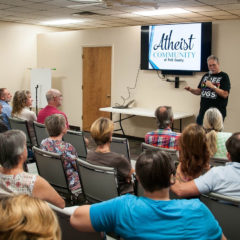
New report finds nonreligious people face stigma and discrimination
By Alejandra Molina — May 4, 2020
(RNS) — A new study finds that nonreligious people face discrimination and stigma, conceal their nonreligious identities and largely see themselves as atheists and humanists.
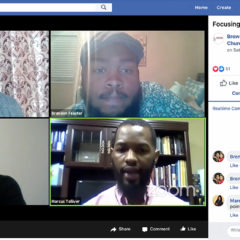
Black churches, via phones and Facebook, bridging digital divide amid COVID-19
By Adelle M. Banks — April 30, 2020
(RNS) — ‘This is definitely new territory,’ said an associate minister in rural South Carolina. ‘We’ve learned to do things that we never thought we’d do.’

Meet Muslim, a new online publication for the Gen Z ummah
By Aysha Khan — April 30, 2020
(RNS) — Last week, student journalist and internet culture obsessive Ameer Al-Khatahtbeh launched Muslim, a digital publication for Muslim teens and young adults.
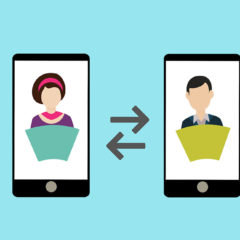
Present tense: Worshipping and performing in the digital age
By Tara Isabella Burton — April 30, 2020
(RNS) — How we inhabit, explore and become vulnerable in spaces traditionally understood as ‘disembodied’ or ‘low stakes’ is among the most important artistic questions of our digital age.
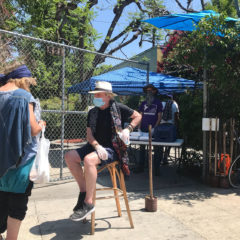
On LA’s Skid Row, Catholic Worker’s ‘Hippie Kitchen’ adjusts to COVID-19
By Alejandra Molina — April 29, 2020
LOS ANGELES (RNS) — Volunteers at the Los Angeles Catholic Worker soup kitchen are improvising to continue services while preventing the spread of the novel coronavirus.

Digital pilgrimages allow the faithful to travel the world from their couches
By Emily McFarlan Miller — April 29, 2020
(RNS) — From hashtagged photos posted on Instagram to immersive apps, digital pilgrimages are making spiritual journeys possible for the faithful, even as they stay home.

Yale’s popular happiness class gains an online following among the socially distanced
By Yonat Shimron — April 27, 2020
(RNS) — More than 2.2 million people have enrolled in the 10-week online class called ‘The Science of Well-Being,’ which explores the things people think will make them happy — and the things that actually bring lasting life satisfaction.
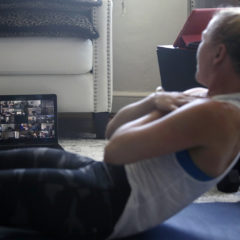
Can the wellness industry survive this sickness?
By Tara Isabella Burton — April 24, 2020
(RNS) — For those privileged enough to minimize their exposure to COVID-19, wellness culture transforms the current crisis into something meaningful, even positive.
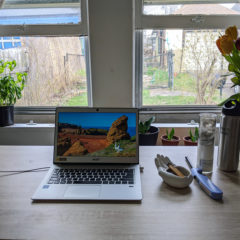
At virtual Family Chapel, the ‘spiritual but not religious’ find community during pandemic
By Alejandra Molina — April 24, 2020
(RNS) — Traditional houses of worship have moved worship for their members online. For seekers and those unaffiliated with any faith, there is Family Chapel.
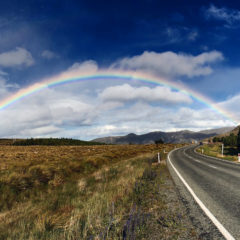
Looking to an Indigenous flood story for lessons on grieving during the pandemic
By Kaitlin Curtice — April 24, 2020
(RNS) — Like Original Man after the flood, we are surveying a devastated world and asking what life will look like on the other side.

During Ramadan in isolation, Muslims get creative to preserve community
By Aysha Khan — April 23, 2020
(RNS) — With a Ramadan in self-isolation set to start this week, Muslims are seeking ways to sustain the traditions and community connections that the holy month usually brings.
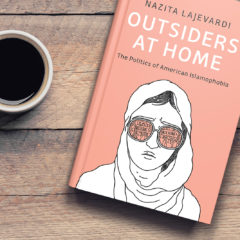
How Islamophobia changed politics for Muslim America
By Simran Jeet Singh — April 23, 2020
(RNS) — Nazita Lajevardi’s new book, ‘Outsiders at Home,’ takes stock of the political toll two decades of Islamophobia has had on American Muslims.
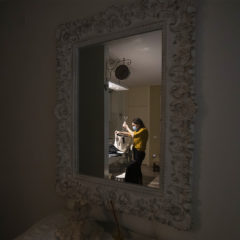
The loneliness pandemic: How the quarantined are grappling with solitude and faith
By Claire Giangravé — April 20, 2020
VATICAN CITY (RNS) — In the new life these orders have created, solitude has become the sole, unexpected companion for those who live alone or who have contracted the virus and are suddenly living in isolation.
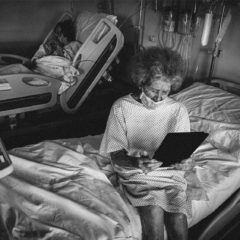
The loneliness pandemic: The elderly in ICUs battle coronavirus and solitude
By Claire Giangravé — April 20, 2020
VATICAN CITY (RNS) — Many elderly, less nimble with modern means of communication, are particularly at risk of feeling alone.
